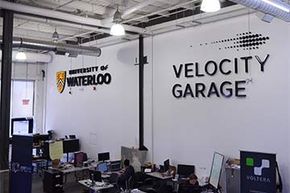Innovation Depot used to be a 1940s-era Sears department store. Fully renovated in 2007, the modern, 140,000-square-foot (13,006-square-meter) glass and concrete facility in downtown Birmingham, Alabama, is now home to 99 technology companies specializing in everything from mobile software development to microbial testing kits [sources: Innovation Depot, Strauss].
But it isn't a corporation or even a for-profit business, and it's not just a cool office building in Birmingham's hip "Entrepreneurial District." Innovation Depot is what's known as a tech incubator, an organization that supports the development of new business ideas by providing mentorship, business services and funding connections to young tech companies.
Advertisement
There are more than 1,250 business incubators in the United States (up from 12 in 1980), and about 37 percent focus specifically on developing technology companies [source: NBIA]. Tech incubators come in all shapes and sizes and business models.
Innovation Depot, for example, is a nonprofit organization created by a partnership between the University of Alabama at Birmingham (UAB) and the greater Birmingham business community to promote the local tech economy [source: Innovation Depot]. Thirty-two percent of American incubators are sponsored by colleges and universities and 25 percent by economic development organizations. Just 4 percent are sponsored by for-profit entities [source: NBIA].
The idea of an incubator sounds like something forged in the dot-com boom of the late 1990s, but the business incubator concept dates all the way back to 1959, when the Batavia Industrial Center was created in upstate New York [source: NBIA].
In 2015, more than 7,000 business incubators operate worldwide, some in shiny Silicon Valley industrial parks, some on college campuses, and others in developing countries [source: NBIA].
So how does a business join an incubator and what services do they offer?
Advertisement




